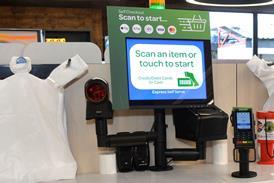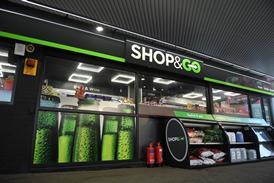It’s 1988 - Maggie Thatcher and Ronald Reagan rule the roost; the Russians decide to pull out of Afghanistan; the Iraq-Iran war is drawing to a close; house prices rocket by 28% in a year; Wimbledon win the FA Cup; and petrol is 34.9p a litre. And, oh yes, the first Mo’gas column appears in Forecourt Trader.
Twenty one years later and I’ve decided that it’s time to bow out gracefully, before I exceed my sell-by date. In saying farewell it gives me an opportunity to reflect on some of the changes there have been in our industry.
Back in the later 1980s, although the supermarkets were making steady inroads, the oilers were still major players in the retail forecourt scene and most of our issues then were concerned with the unevenness of our treatment at their hands. Seems strange to look back at the battles we had (virtually all lost, I’m afraid to say) over the terms and conditions foisted onto licensees, the cost of promotions and the drift towards the dreaded com-op.
I’ve lost count of the number of Monopolies Commission enquiries we managed to bring about. Unfortunately, all of them came to the same conclusion - the oil companies and supermarkets were wonderful people and we should stop whingeing! And while the effect of this laissez faire attitude has meant our numbers have been decimated, I would have to admit that if we look at the current prices fuel is being retailed at, the British consumer is still benefiting from some of the thinnest retail margins in the world. Even if they may have to drive a lot further to fill up.
It’s ironic, really, that the majors battled for so long to be able to enlarge their company-owned networks without restrictions - only to be forced to the conclusion that the most profitable route for them was to get out of forecourt retailing completely! Which leads me to a certain schadenfreude as I raise my glass to some of our absent friends. Mobil, Elf, Burmah, Fina - I guess I’ve had the last laugh as at least I’m still in business!
Our industry has certainly come a long way since those early days of forecourt shops. In those days the pioneers were the swag retailers - selling telephones, digital watches, clock radios, garden furniture (anybody else remember the £21.99 Venetian patio set with its built-in three-year obsolescence?) and fluffy toys. Credit card transactions were paper based complete with the ubiquitous carbon paper; reconciling shift sheets required a degree in mathematics and a proficiency with a calculator; stock was counted and ordered manually; and fresh food equated to a sandwich that hadn’t yet gone out of date. A willingness to embrace technology and the desire to push the boundaries has taken us such a long way.
One war that we fought, and actually achieved some success with, was over price-marked packs, whether it was cigarettes or confectionery. While special offers and eye-catching price reductions have an essential role in setting the atmosphere of a convenience store, can you imagine trying to make a profit when manufacturers are dictating your margin across the whole range of their products.
So what conclusion can I come to at the end of my tenure? Interestingly enough, it’s reasonably simple. Over the years we’ve continually been fighting battles against the big boys. The names of the big boys may have changed, and the focus of the conflicts may have varied, but the format has retained a certain consistency.
With each new threat/change to our livelihood there has been one set of retailers (the old guard) who’ve bemoaned their lot, complained they will never survive and, one way or other, haven’t! The other set of retailers (the new guard) have just considered that each new set of circumstances merely represents a new set of challenges. Finally, I hope you have enjoyed reading this column as much as I’ve enjoyed writing it. I wish you all continued success.























No comments yet